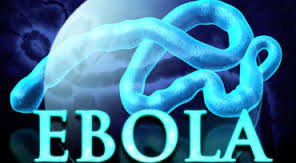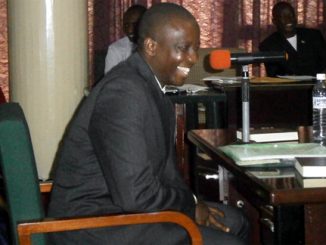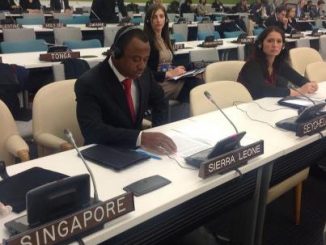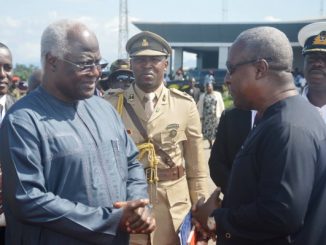
Confirmation that a man who flew to Texas from Liberia later fell ill with the hemorrhagic fever prompted U.S. health officials to take steps to contain the virus, which has killed at least 3,338 people in Liberia, Sierra Leone and Guinea, the World Health Organization said.
The patient was evaluated initially last Friday and sent home from Texas Health Presbyterian Hospital with antibiotics, a critical missed opportunity that could result in others being exposed to the virus, infectious disease experts said.
The man was admitted to the same hospital on Sunday, where he was in serious condition, a spokeswoman said. The hospital cited the man’s privacy as the reason for not identifying him, but the Associated Press gave his name as Thomas Eric Duncan.
Five Dallas-area students were being monitored for possible exposure to Ebola after coming into contact with the man over the weekend, Dallas officials said. A Dallas County health official said 12-18 people were being monitored because of possible contact with the patient.
“The students did not have any symptoms and so the odds of them passing on any sort of virus is very low,” Mike Miles, Dallas Independent School District superintendent, told a news conference.
Miles said the five had been in school since then but were now at home. He said the schools would be staffed with additional health professionals and classes would remain in session.
Texas officials said health workers who took care of the patient had so far tested negative for the virus and there were no other suspected cases in the state. Texas Governor Rick Perry told a news conference he was confident the virus would be contained, as did other officials.
“People can be confident here in this country that we have the medical infrastructure in place to prevent the broad spread of Ebola,” White House spokesman Josh Earnest said on CNN.
U.S. stocks fell sharply. Airline and hotel company shares dropped over concerns that Ebola’s spread outside Africa might curtail travel. Drugmakers with experimental Ebola treatments in the pipeline saw their shares rise.
Anyone who might have had contact with the patient will be closely monitored for the next 21 days, the time it can take for symptoms to appear.
“We have a seven-person team in Dallas today helping to review that with the family and make sure we identify everyone that could have had contact with him,” Dr. Thomas Frieden, director of the U.S. Centers for Disease Control and Prevention (CDC), said in an interview with NBC TV’s “Today” show.
Ebola spreads through contact with bodily fluids like blood or saliva, which health experts say limits its potential to infect others, unlike airborne diseases. Still, the long window of time before patients exhibit signs of infection, such as fever, vomiting and diarrhea, means an infected person can travel without detection.
While past outbreaks killed as many as 90 percent of victims, the current epidemic’s fatality rate has averaged about 50 percent in West Africa.
FLIGHT PATH
The patient in the United States arrived in Texas on Sept. 20, and first sought treatment six days later, according to the CDC. The Liberian government said that the man showed no signs of fever or other symptoms of Ebola when he left Liberia on Sept. 19. A Liberian official said the man traveled through Brussels to the United States.
Several leading U.S. airlines said they were in close contact with federal health officials about Ebola-related travel concerns.
On Wednesday, officials repeated a call to healthcare workers to be vigilant in screening patients in the United States for possible signs of the virus.
“If you have someone who’s been in West Africa in the past 21 days and they’ve got a fever or other symptoms that might be consistent with Ebola, immediately isolate them, get them tested,” Frieden told NBC.
Meanwhile, World Bank President Jim Yong Kim, the first public health expert to lead the institution, said fighting Ebola means confronting inequality, as people in poor countries have less access to knowledge and infrastructure for treating the sick and containing it.
(Additional reporting by Jon Herskovitz in Austin, Texas; Writing by Grant McCool; Editing by Jonathan Oatis and Howard Goller)




Leave a Reply